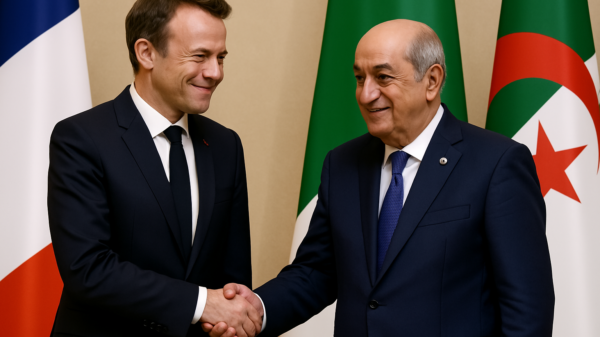Adnan Adams Mohammed
The Ghana Revenue Authority (GRA) says, in a special exercise to seal revenue losses, recovered in excess of GHS85 million revenue within a five month period between October 2022 and February 2023.
This comes at the time the managers of the economy are in ‘mad-rush’ to increase domestic revenue mobilisation as one of the conditions for the pending International Monetary Fund’s Board Approval for a US$3.0 billion Balance of Payment Support.
An economist has estimated that, Ghana loses more than GH¢5.6 billion annually in tax revenue. Blockage or reducing excessive bleeding of domestic revenue collection have been a discussion by many; including financial and economic experts, international development partners, civil society groups and the government actors. However, the discussion becomes as usual, a ‘talk-show’ without any significant achievement in revenue leakages blockage. This forces the government to resort to the cheap way of increasing domestic revenue by introducing new taxes or reviewing upwards existing taxes and levies almost every year. Just last week, the government proposed new taxes which have received strong opposition. But, the economist has passed judgment that, until government blocks revenue leakages that have bedeviled the country’s revenue mobilisation system for ages and creates an environment that encourages tax payers to be tax-compliant, the country will continue to lose large volumes of revenue yearly.
“We need to build systems in place to ensure that we keep to the barest minimum the leakages that leave the revenue stream. And it’s very very important that we do this”, Professor Ebo Turkson indicated in an interview following the attempt by government’s move to introduce new tax measures.
Citing the situation at Ghana’s ports and habours, he stated that the use of various government agencies to collect taxes and invoices has created space for people to evade taxes rather than comply due to how complicated the system is.
In anticipation to bring in more revenue, the Ministry of Finance, last week, laid three revenue papers; the Income Tax Amendment Bill, Growth and Sustainable Bill and the Excise Amendment Bill to parliament for consideration to be passed into law after approval from the Finance Committee of Parliament for it to be considered by the house. The ministry is optimistic that these revenue bills will bring in almost GH¢5 billion to support the economy. But, unfortunately the general House approval of the bills may suffer setbacks as key actors in the economy are against the proposals.
The 80:20 paradox
Apparently, a tax Consultant believes that government’s move to introduce new taxes will deepen the tax net instead of widening it. According to him, the government’s new tax measures are merely entrenching Ghana’s 80:20 tax paradox where 80% of tax payers contribute 20% of tax revenue while 20% of tax payers contribute 80% of tax revenue.
“The existing tax payers we know who are complying, if you increase taxes or you introduce taxes, the same segment of people continue to carry that burden because we have a paradox in the revenue mobilisation sector in Ghana where we say 80:20 paradox. 80% of tax payers bring in only 20% of revenue and 20% of tax payers bring in 80% of tax revenue”, Dr. Abdallah Ali Nakyea said in an interview.
The lecturer at the University of Ghana Law School explained; “Who are these 20%? The multinationals, the banks, financial sector, these are the same people we’ve saddled with national reconstruction levy, we’ve saddled them with financial sector recovery levy and now we’re talking about growth and sustainability levy. The 80% we all keep saying, the informal sector is between 70 and 80%, what is their contribution to revenue?. So if we’re even able to nurture the 80% non-compliant to come up to 60% you can imagine the revenue we can make.”
The tax expert further refuted that, the IMF had not made the introduction of new taxes a requirement for board approval; rather, it had urged the government to develop its fiscal space.
“I don’t think that anybody will tell you bring in taxes before I give you a loan. If he tells you I want to see how you’re developing your fiscal space, has he told you to increase taxes?” he said.
Anti-Business taxes
In his contraction, the Chief Executive Officer of the Ghana National Chamber of Commerce and Industry, Mark Aboagye, has noted that adding more taxes to an already tax-burdened economy will be counter-productive to revenue generation. Indicating that, the introduction of new tax measures to ramp up revenue generation is anti-business and should it be passed would collapse many businesses.
Reacting to the impasse between the Majority and Minority side of parliament concerning the course of proceedings on the new tax bills, the industries leader expressed extreme happiness that the tax measures were not passed and has called for them to be withdrawn from the house for wider consultation.
“Extremely happy, extremely excited because those taxes are anti-business, and I have no doubt in my mind that if it’s passed it’s going to cause the collapse of a lot of businesses, and businesses are going to produce under capacity. If you look at the environment and already the taxes that we have, adding up was going to be harsh for businesses so we’re happy that it’s not been passed.
He explained that in the government’s quest to generate revenue, it was crushing the very industries that would provide the revenue.
He said, should the tax measures be passed, “it’s going to cause unemployment.”
“We’re killing the micro, the basics for us to get to all these macro policies to work, we’re weakening it. So for me, we’re happy it’s not being passed, they should withdraw it, consult the business community, the Chamber is ready to work with them, get them convinced that these taxes what extent are they going to impact on your businesses, [also] get their input into the taxes,” he said.
Consequently, Prof Turkson in the interview described the government’s yet-to-be-passed tax measures as nuisance taxes, warning that, should they be maintained businesses would suffer in an already harsh climate.
“When you begin to introduce some of the taxes that become input taxes before you go and tax their profit you’re hurting them. You’re trying to tell them that you’re increasing their cost of production when you should rather be reducing their cost of production for them to produce more, make more profit and then you go and tax after they declare their profit. And that is what the businesses are complaining about, that is what we’ve called nuisance taxes in the past. And why they’re coming back I do not understand,” he said.
Tax Incentives to attract investments
Prof Ebo Turkson further explained that, most investors are least enthused by the government’s tax incentives as they are more concerned about the economic environment the government creates for them to run their business smoothly, thereby urging government to move beyond using tax incentives to attract foreign investment.
“Ghana should move beyond using tax incentives to attract investment. When you ask those who bring in investments they’ll tell you that the least of the incentives is the tax incentives that we give them. They need a business environment that is conducive, so don’t give them any tax exemptions. Give them a business environment that is conducive for them to come and produce here and tax them, they’ll pay,” he said.
The debt-stressed economy
Meanwhile, the Government of Ghana is currently facing serious liquidity challenges and is unable to service its debts.
The debt-stressed Ghanaian economy is in dire need of revenue to be able to survive pushing the government to resort to debt restructuring. The government concluded a domestic debt exchange programme in February this year and looking forward to an external debt relief. In early part of this year, Ghana asked official creditors for a debt restructuring under the G20 Common Framework Treatment. The IMF has said a comprehensive debt restructuring is a condition of its support.
The country has been struggling to refinance its debt since the start of 2022 after downgrades by multiple credit rating agencies on concerns it would not be able to issue new Eurobonds.
The Bank of Ghana’s January 2023 economic and financial data summary revealed that total public debt stock has shot up to GH¢575.7 billion at the end of November 2022, according to new data released by the Bank of Ghana.
The new debt figure brings Ghana’s debt to Gross Domestic Product (GDP) ratio to 93.5% from 75.9% in September 2022.
The external component of the country’s public debt shot up to GH¢382.7 billion in November 2022, equivalent to 62.1% of GDP. This was from GH¢271.7 billion in September 2022.
However, according to the Bank of Ghana, the total public debt is defined as Central Government debt excluding State Owned Enterprises/Special Purpose Vehicles Debt.
Also, according to Trading Economics’s global macro models and analysts expectations, government Debt to GDP in Ghana is expected to reach 86 percent of GDP by the end of 2023. In the long-term, the Debt to GDP is projected to trend around 88% of GDP in 2024 and 90% of GDP in 2025.
Generally, Government debt as a percent of GDP is used by investors to measure a country ability to make future payments on its debt, thus affecting the country borrowing costs and government bond yields.
Part two of this article details the better way out of the annual ritual of introducing new or reviewing existing tax policies to overburden the already tax compliant individuals and institutions.




























